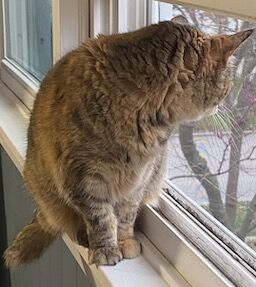Mindfulness
On the Pleasure of Not Rushing
Staying calm in an overly busy life.
Posted May 23, 2022 Reviewed by Michelle Quirk
Key points
- Rushing doesn't help when you're busy. In fact, it gets in the way.
- Rushing to get stuff done gets in the way of peace, happiness, and mindfulness.
- Putting mental boundaries around how long a given task will take and when I'll do it keeps me from rushing and helps me be present.
I just learned something I’ve learned before and keep somehow forgetting: Rushing is the problem. Rushing is what’s making being busy, maybe overly busy, painful. It isn’t how much I have to do, it’s not how little time I have or all the interruptions. At least not totally. It’s rushing. Trying to do more than I can in the time I’ve got. Feeling like I should get a lot done, have to get a lot done, have to get more done, and then speeding up to try to get it all in.
It makes sense: It seems like you should be able to get twice as much done if you go twice as fast.
But rushing isn’t helpful, and it doesn’t work. It doesn’t make me accomplish more, and it might even get in the way of my ability to get stuff done. Not to mention my ability to enjoy the day while I get stuff done.
I have a better solution than rushing, and I just used it this morning.
I have a lot to do today—a lot I want to do today, which morphed into a lot I have to do today. I planned my day in a way that would allow me to get everything done. But then I remembered: Oh no, I have to clean the cat boxes. They pick up the trash tonight; yesterday and the day before and the day before that I postponed cleaning the cat boxes telling myself I’d do it today because I would have time to do it today.
Right away, that thought—I have to clean the cat boxes—made me start rushing this morning. I hate rushing, so I did what I’ve learned to do, my own little foolproof way of slowing down. I created a slot, in my day, in my thinking, for cleaning the cat boxes.
It takes about 20 minutes to clean the cat boxes, an astonishing fact considering how much space doing it takes up in my mind, how long I think it’s going to take, and how much I don’t want to do it. But I know that’s how long it takes because I timed it a while ago: The whole thing—emptying, washing, refilling three cat boxes and making two trips up the basement stairs to the trashcan outside—takes only 20 minutes. Twenty-five if I’m really moving slowly.
This little trick—figuring out from what time to what time I’m going to do something—really works, not just with an odious job like cleaning the cat boxes but with anything. I’ve found that I can slow way down and totally change my energy just by doing that: deciding how much time I’m going to spend on something and putting a little set of mental beginning and ending boundaries around it. That way I know from what time to what time I’m going to do the thing I need to do. I know how I’m not going to use that time, too, so I don’t have to rush to try to cram something else in.
Sometimes I even experiment with doing things more slowly than I might normally do them, within my little time boundaries, just to see if slowing down makes a difference in whether or not what I’m doing gets done. It doesn’t. All consciously slowing down does is make me feel even calmer and more mindful. That’s another thing about this putting-boundaries-around-chunks-of-time; it makes it possible to be mindful because I’m not rushing. Maybe rushing is very thing that gets in the way of mindfulness. Plus, the thing gets done. I no longer have to spend the whole day dreading it, avoiding it, and feeling guilty about not doing it.
So, this morning, I dealt with the rushing feeling by picking a 20-minute slot—I put it into the day right away to get the cat boxes out of the way—and then I went downstairs to the basement and did that awful job, emptying, washing, carrying, and dealing with all that cat poop, calmly and peacefully. I even kind of enjoyed it.



